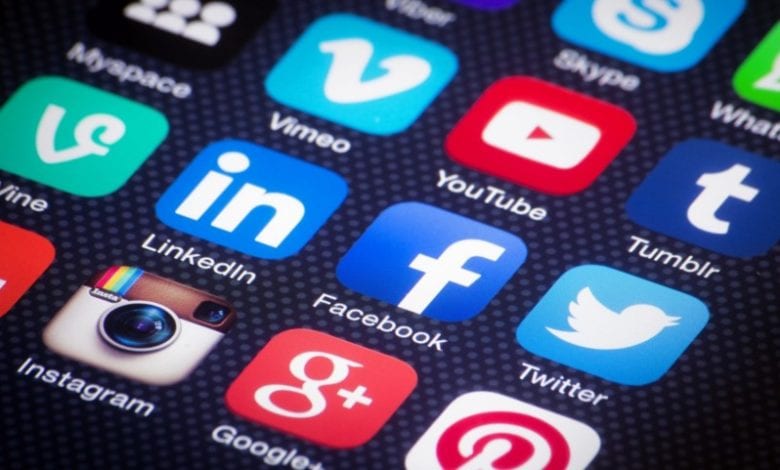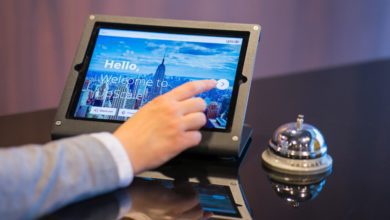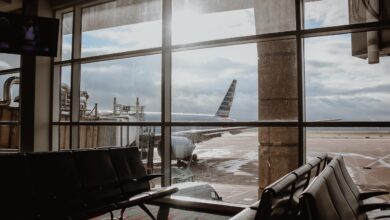
For many who are not part of generation Y, the social media revolution can feel like it has passed them by. But now that it is a staple ingredient in the modern marketing mix, there’s no excuse for being in the dark. We asked JULIAN VAUGHAN to shed some light on this dark art and how it can be deployed in hotel marketing
Not so long ago the likes of Facebook and Instagram were just a vision in the minds of the forward thinking. These days they are used worldwide and form part of our rhetoric. It should also form part of your marketing strategy.
In the developing days of social media hoteliers perceived it as a tool for the guest and something often highlighting the negative. Now the tables have turned and the savvy hotelier understands social media is there to be embraced and exploited as a powerful marketing method.
The change was sparked by statistics, which left hoteliers with little choice but to update their thinking. According to research, social media influences 87% of online users in their choice of hotel. And with 57% of all travel reservations reportedly made online, hotels must have a presence on social media or risk missing out on bookings.
The question now is not whether hotels should be using social media, but how to get the most from it.
Firstly the vast scope of social media allows hoteliers to extend their offering to a huge potential audience. Social media isn’t just a tool, but rather a toolbox with a variety of different platforms, each of which offer the chance to reach different audiences and highlight the best of your business.
Twitter is ideal for brief messages; sending out correct links with comments or headlines and exchanges, with the retweet and quote function enabling hoteliers to reach a huge number of users. Reaching a greater number of people via your Twitter account relies on having an active and engaging account, which tweets a variety of new items. I also advise businesses to get involved in local news stories. Not only does this widen the potential reach of your tweets, but also builds a relationship with local media.
The biggest network is (obviously) Facebook, making it the ideal place to create a network of people who ‘like’ your business, and send out offers including key information. It allows a more market-specific approach – specifically if you want to pay for targeted advertising – as you are predominantly reaching those people already connected with your business.
This makes it ideal for repeat business and as somewhere for recommendations to take place. This can be done on your own business home page by people, by users sharing your status, whereby people can share your post with their own network of friends, using the comment option beneath a status. All this makes it vital for you to ensure your page is available for all to see.
For the snap-happy there is Instagram, a popular platform for hoteliers thanks to its visual appeal. This app enables hoteliers and guests to showcase eye-catching imagery of their surroundings, events, food, spa treatments and facilities, or other seasonal activities, and offers a platform to tell an engaging story inspiring people to visit.
Pinterest is a newer app, being around two years old now. Users enter the app and ‘pin’ content to boards, perhaps concerning their wedding or summer holiday. Create images and content of interest to your network and customers, which they can ‘pin’, and ensure your business name is in the pin caption. This network is becoming more business friendly as in-app purchases grow so it’s a great time to ensure your business has the right kind of presence.
It’s vital to remember these social networks were initially used as a means of communication between friends and communities, making them an ideal platform for guests to let you know their thoughts.
While not strictly a social network, TripAdvisor has become a social community that people routinely visit for what they assume will be a ‘true’ reflection of your business. It’s vital to be part of this community and a respected part of the conversation, whether a review is left on TripAdvisor, Facebook or as a Twitter comment. Remember, social media doesn’t cause the problems but it can highlight them.
Each time a review is left, it’s important to extract the good, which can be used in your own promotional material and deal with the negative – should there be any. Ignoring concerns will reflect badly on you, whilst responding demonstrates an attention to detail and good customer service. In some instances an online response is all that’s needed, in others a more appropriate course of action is required, but by beginning a resolution online you put the wheels in motion, reassuring the complainant and impressing silent observers.
If you’re only now beginning to establish a presence on social media be sure to do it right. Be prompt and demonstrate your care and compassion for each customer, as poor social media management could reflect on your venue as a whole. Complaints should be few and far between and, if not, a wider look at your business processes may be required.
The value of the network also means it is an ideal place to communicate your own messages. It’s less invasive than the more traditional forms of marketing and part of the core values of the sites. All this real-time interaction is time consuming, but in my experience it is worth the time invested.
Many people assume reviews are only given once people have vacated your property, but this is not the case. Guests will often take the time to give on-the-spot reviews, especially via social media. For example, customers will often take to Twitter or Facebook, including a photo, when they arrive somewhere. My advice is capitalise on this and take some control of this activity. From the moment a guest checks in, seize the opportunity to connect with them.
Social media also offers a direct line from you to your potential customer and this should empower hoteliers as it enables them to communicate and engage in real time, perhaps by capturing images of the chefs preparing dishes for the lunchtime menu. It helps to entice visitors to make a booking and resident guests will also be encouraged to have dinner at the hotel.
Lastly social media really is the place to be, if you’re not there then you really are missing out on your slice of the cake. Facebook is the largest social network in the world and given this level of activity around the world, by not embracing social media, businesses are made conspicuous by their absence. Tapping into this activity will create a strong online presence and ultimately catch the attention of future guests.
ABOUT THE AUTHOR
Julian Vaughan is co-founder of Hospitality Experts, a new consortium of industry specialists. He is also director at hotel marketing experts Journey and Brand Ambassador for Creative Network, a hub of five leading agencies, connecting people looking for a fully integrated marketing solution.









